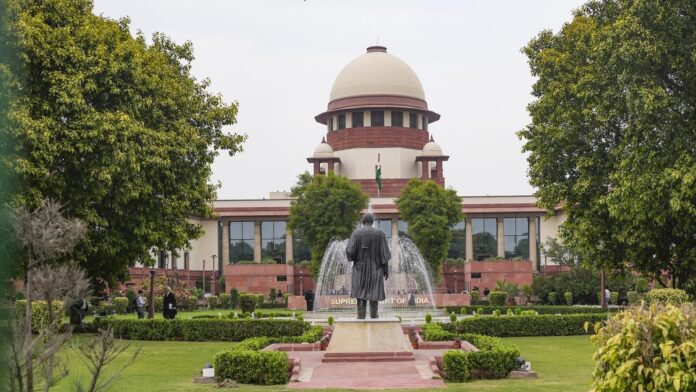NEW DELHI: In a significant blow to the Finance Ministry’s efforts to restrict tax benefits, the Supreme Court of India has once again dismissed a review petition challenging its earlier judgment that allowed real estate companies to claim Input Tax Credits (ITC) on the construction cost of commercial buildings intended for rental purposes.
A Bench led by Justice AS Oka, on Tuesday, found “no error apparent on the record” after reviewing both the petition and the October 3, 2024 judgment that had been sought to be reviewed. This decision reaffirms the apex court’s stance, providing crucial relief to the real estate sector.
The controversy stems from a perceived “drafting error” in the Goods and Services Tax (GST) law. The government, through the 55th Goods and Services Tax Council in December, had suggested a retrospective amendment to the GST law to correct what it described as an error in Section 17(5)(d) of the Central Goods and Services Tax Act (CGST) Act, 2017. This section originally prohibited claiming ITC for construction materials, with an exception for “plant or machinery.”
The proposed amendment aimed to change the terminology from “plant or machinery” to “plant and machinery,” effectively narrowing the scope for claiming ITC. Sanjay Kumar Agarwal, former chairman of the Central Board of Indirect Taxes and Customs, had previously stated that while the term “plant and machinery” appeared in 11 places in the GST Act, it was incorrectly written as “plant or machinery” in one specific instance, an error he said was being corrected retrospectively from July 1, 2017.
However, the Supreme Court’s October 3 judgment had provided a major relief to the real estate sector by ruling that if the construction of a building is essential for supplying services such as leasing or renting out, it could fall under the ‘plant’ category, thus allowing ITC to be claimed under Section 17(5)(d). The court reasoned that if buildings provided on rent perform the same function as a “plant” in a factory that produces economic value and output supply, then ITC on such buildings cannot be denied.
This judicial interpretation aligned with an earlier 2019 decision by the Odisha High Court in the case of Safari Retreats, which had allowed an real estate firm to claim ITC on works contracts and other goods and services used in the construction of an immovable property, excluding plant and machinery. The High Court had then ruled that ITC for construction materials under the provision could not be denied to developers constructing properties for renting out, a decision that the revenue department subsequently challenged in the Supreme Court.
Saurabh Agarwal, Tax Partner at EY, commented on the development, stating that while the SC judgment on ITC aligns with the industry’s logical expectation—that credit should flow seamlessly when output is taxed—the recent retrospective amendment unfortunately negates this clarity. He warned that this development “doesn’t bring the anticipated tax certainty. Instead, it’s highly probable that after this development industry will now challenge the retrospective amendment made in terms of last budget, prolonging the uncertainty we all hoped to avoid.”
The Supreme Court’s latest rejection of the review petition solidifies its interpretation, potentially setting the stage for further legal challenges from the industry against the government’s retrospective amendment.

